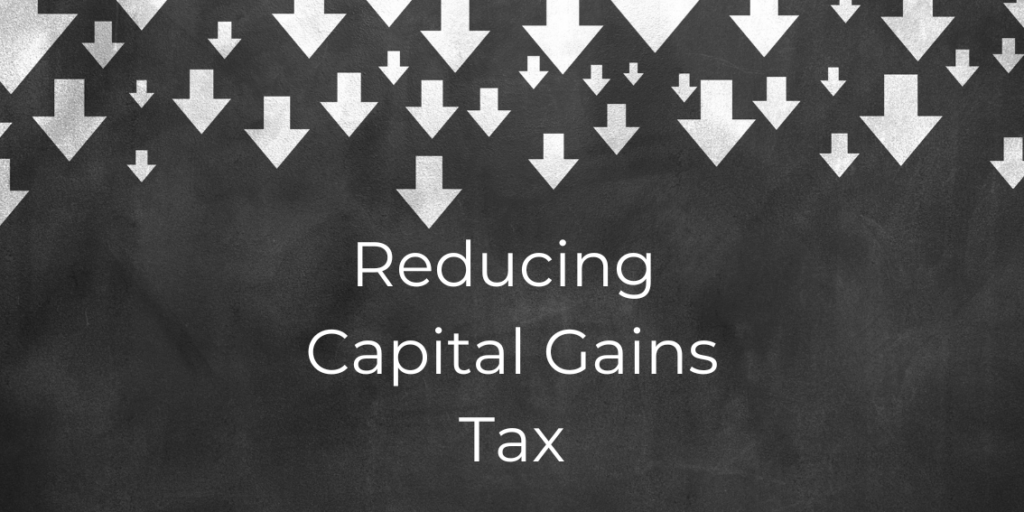Capital Gains Tax for Business: An In-depth Guide

Capital gains tax (CGT) arises when certain assets of a business are sold at a profit. The gain is based on the sale proceeds less the purchase price, adjusted respectively for selling and acquisition costs.
Capital gains were untaxed until CGT was introduced in 1965. CGT rates underwent changes in 1998, 2008, 2010 and 2016. In 2020, the Office for Tax Simplification proposed further changes including the alignment of CGT with Income Tax and a reduction in the CGT allowance.
With further changes to CGT expected to come into effect with the new labour government, it’s important to know exactly how it can affect your business and where you stand moving forwards.
Do businesses pay Capital Gains Tax?
Yes – the types of business affected by CGT are sole traders and partnerships. Sole traders, the self-employed, and partners in businesses pay tax through self-assessment. Alongside earned income, chargeable gains which are subject to CGT must be declared. Limited companies are not subject to CGT, but pay Corporation Tax, including on gains from the disposal of assets.
Which asset disposals are covered by CGT?
The self-employed and members of partnerships may need to pay tax when they dispose of assets including:
- residential property, excluding your main home
- commercial property
- rental property
- fixtures and fittings
- equipment and machinery
- shares and investments, excluding those held in an ISA or PEP
- registered trademarks, goodwill, or your business’s reputation
- cryptocurrency, such as Bitcoin
- customer lists
Any personal property worth more than £6,000 may also be subject to CGT, excluding your car.
For the purpose of Capital Gains Tax, disposal of an asset includes:
- sale to another person or business
- transferring or gifting the asset to someone else
- exchange for a different asset
- receiving compensation for it (i.e. an insurance payout)
When do you not have to pay CGT?
You will not usually need to pay Capital Gains Tax on gifts to:
- Your husband or wife
- Your civil partner
- A charity
Moreover, the following are also typically exempt from CGT:
- The sale of your main place of residence
- ISAs
What are CGT tax rates?
Capital Gains Tax bands are aligned to Income Tax rates:
If you pay higher rate Income Tax
If you’re a higher or additional rate taxpayer you’ll pay:
- 28% on your gains from ‘carried interest’ if you manage an investment fund
- 24% on your gains from other chargeable assets, including residential property
If you pay basic rate Income Tax
If you’re a basic rate taxpayer, you will pay a lower 18% rate of capital gains tax for the gains within your basic rate band, and any gains above this threshold will be at the rates above.
If you’re a trustee or business
Trustees or personal representatives of someone who’s died pay:
- 28% on residential property
- 20% on other chargeable assets
You’ll pay 10% if you’re a sole trader or partnership and your gains qualify for Business Asset Disposal Relief.
What are CGT Reliefs?
Various important reliefs are available under CGT rules. CGT is a complex area with detailed rules relating to multiple issues including assessing gains, the nature of disposals, allowances and much more. To fully understand how they apply in individual circumstances, we most definitely recommend that you speak to our capital tax experts at Perrys to ensure that you claim the right reliefs, and that you do not pay too much or too little tax.
An overview of available reliefs is as follows:
| Relief | Description | Eligibility |
| Business Asset Disposal Relief (Formerly Entrepreneurs’ Relief) | Pay 10% (increasing to 14% for 2025/26 and 18% from 2026/27) Capital Gains Tax on qualifying profits if you sell all or part of your business (instead of the normal rates) | For sole traders, business partners or those with shares in a ‘personal company’ |
| Investors’ Relief | External investors pay 10% Capital Gains Tax on shares in unlisted trading companies | Shares must be newly issued and held for a continual period of at least 3 years and new assets in your business |
| Business Asset Rollover Relief | Delaying paying Capital Gains Tax when you sell or dispose of some types of asset if you replace them | Buy the new asset within 3 years of disposing of the old one. Use the old and new assets in your business |
| Incorporation Relief | Delay paying Capital Gains Tax when you transfer your business to a company | Transfer all your business and its assets (except cash) in return for shares in the company |
| Gift Hold-Over Relief | Pay no Capital Gains Tax if you give away a business asset – the person you gave it to pays tax when they sell it | You used the business asset for trading as a sole trader or partner |
Business Asset Disposal Relief (BADR)
BADR may be available for certain business disposals and has the effect of charging the first £1 million of gains qualifying for the relief at a rate of 10% (increasing to 14% for 2025/26 and 18% from 2026/27). You can claim a total of £1 million in BADR over your lifetime.
To qualify for relief on the sale of your unincorporated business, you must have been a sole trader or business partner and owned the business for at least two years.
The relief is also available to individuals on the disposal of:
- been a sole trader or business partner
- owned the business
The relief is available to individuals on the disposal of:
- the whole, or part, of a trading business
- shares in an individual’s ‘personal company’
- assets used by a business or a company which has ceased within the last three years
Where an individual makes a qualifying disposal, relief may also be available on an ‘associated disposal’. An ‘associated disposal’ is a disposal of an asset:
- used in a qualifying company or group of companies of the individual or
- used in a partnership, where the individual is a partner.
Restrictions on obtaining the relief on an ‘associated disposal’ are likely to apply in certain specific situations. This includes the common situation where a property is in personal ownership but is used in an unquoted company or partnership trade in return for a rent. Under BADR the availability of relief is restricted where rent is paid.
The 5% rule for company shareholders
To qualify for BADR when selling shares, the company needs to be an individual’s ‘personal company’ for at least two years where the individual must:
- be a company employee or office holder
- hold at least 5% of the company’s ordinary share capital
- be able to exercise at least 5% of the voting rights
For disposals on or after 29 October 2018, they must also satisfy one of the following tests:
- a distribution test – an individual is entitled to at least 5% of the company’s profit available for distribution to equity holders and 5% of the assets available for distribution to equity holders in a winding up; or
- a proceeds test – an individual is entitled to at least 5% of the proceeds in the event of a disposal of the whole of the ordinary share capital of the company.
From 6 April 2019 those shareholders whose holding in their company is reduced below the normal 5% qualifying level as a result of raising funds for commercial purposes by means of an issue of new shares may still obtain BADR. Careful planning will be required with BADR but if you would like to discuss BADR in detail and how it might affect your business, please do get in touch.
Investors’ Relief (IR)
Investors’ Relief is aimed at external investors (other than certain employees or officers of the company) in unlisted trading companies. To qualify for the “10% (increasing to 14% for 2025/26 and 18% from 2026/27)” CGT rate under ‘investors’ relief’ the following conditions need to be met:
- shares must be newly issued and subscribed for by the individual for new consideration
- be in an unlisted trading company, or an unlisted holding company of a trading group
- have been issued by the company on or after 17 March 2016
- have been held continuously for a period of three years before disposal.
An individual’s qualifying gains for IR are subject to a lifetime cap of £10 million.
Business Asset Rollover Relief (BARR)
BARR enables the gain on a business asset to be deferred until a point in the future, as long as you use all or part of the proceeds to buy new assets, or improve the assets you already own. You will then not need to pay CGT until you dispose of the new or improved assets.
To qualify for BARR:
- you must buy the new assets within 3 years of selling or disposing of the old ones (or up to one year before)
- your business must be trading when you sell the old assets and buy the new ones
- you must use the old and new assets in your business
Typically, BARR is claimed on land, buildings, plant and machinery. Partial relief is also available in various circumstances such as:
- reinvestment of part of the proceeds of the disposal
- the old assets were only used in part in your business
- you use the proceeds to buy assets which are expected to last for less than 60 years.
Incorporation Relief
Incorporation Relief allows business owners to delay paying Capital Gains Tax if you transfer ownership in return for shares. This means you will not pay any tax until you sell or dispose of the shares.
To qualify, you must:
- Transfer the entire business and all assets in return for shares in the same company (this does not include any cash assets)
- be a sole trader (or be in a business partnership)
Gift Hold-Over Relief
Business owners can claim Gift Hold-Over Relief when giving away business assets or selling them for less than they’re worth. This means that:
- You do not pay CGT when giving away assets
- The person you give the assets to pays CGT (if any is due) upon selling or disposing the assets, using your original base cost to calculate their gain
You will usually not have to pay CGT when gifting to a husband, wife, civil partner, or charity. Gifting of business assets to members of your family can form an important part of inheritance tax planning.
Private Residence Relief
Private Residence Relief means that you do not usually pay Capital Gains Tax when selling your home. Requirements include:
- the residence has been your main home while you have owned it, if it has been only your main home for part of the ownership period then only partial relief will be available
- the gardens and outbuildings on them are not greater than half a hectare
- you have not let out part of your home
- no part of your home has been used exclusively for business purposes
- you did not buy it purposely to make a financial gain
Private residence relief can be complicated during divorces. While transfers between spouses and partners are free of CGT during the tax year in which they are living together, it may be payable if the transfer takes place after the year of separation.
CGT and Losses
If assets are disposed of at a loss, the loss can be offset against capital gains in the same tax year. It is also possible to utilise brought forward losses from previous years which have not been used, as long as they have been reported to HMRC within four years from the end of the tax year during which the loss arose.
How do I pay CGT?
Pay CGT through self assessment
Sole traders, the self-employed and partners in businesses are required to complete a self assessment tax return which includes pages for reporting capital gains. The deadline for payment is 31st January in the tax year after the year in which you made the gain.
CGT on property sales
If you sell property in the UK, you must report and pay CGT within strict time limits or risk incurring interest and a penalty. A Capital Gains Tax on UK Property Return must be prepared and filed, and any CGT paid, within 60 days of selling the property.
Capital Gains Tax Calculator
If you need to pay CGT, your self assessment return needs to include your calculations with details of:
- each capital gain or loss you report
- how much you bought and sold the asset for
- the dates when you took ownership and disposed of the asset
- other relevant details, such as the costs of disposing of the asset and any tax reliefs you’re entitled to
- calculations for each gain or loss you report
HMRC provides a Capital Gains Tax calculator designed for property disposal, but in order to ensure accuracy for your return, you are advised to consult with Perrys tax experts.
Further information on Capital Gains Tax
CGT regulations are full of complexity and potential pitfalls. In addition to the above, we advise clients on CGT regulations are full of complexity and potential pitfalls. In addition to the above, we advise clients on a wide range of specific issues including:
- trusts
- employee share schemes
- gifting personal possessions
- gifts to charities
- divorce and separation
- non-UK residency
- transfers on death
See more on our Capital Gains Tax services, our CGT factsheet, and our article on CGT deadlines. For a clear view of how CGT affects your business, do not hesitate to get in touch with us for a consultation.








